15 Nano Banana Image Editing Examples & Prompts
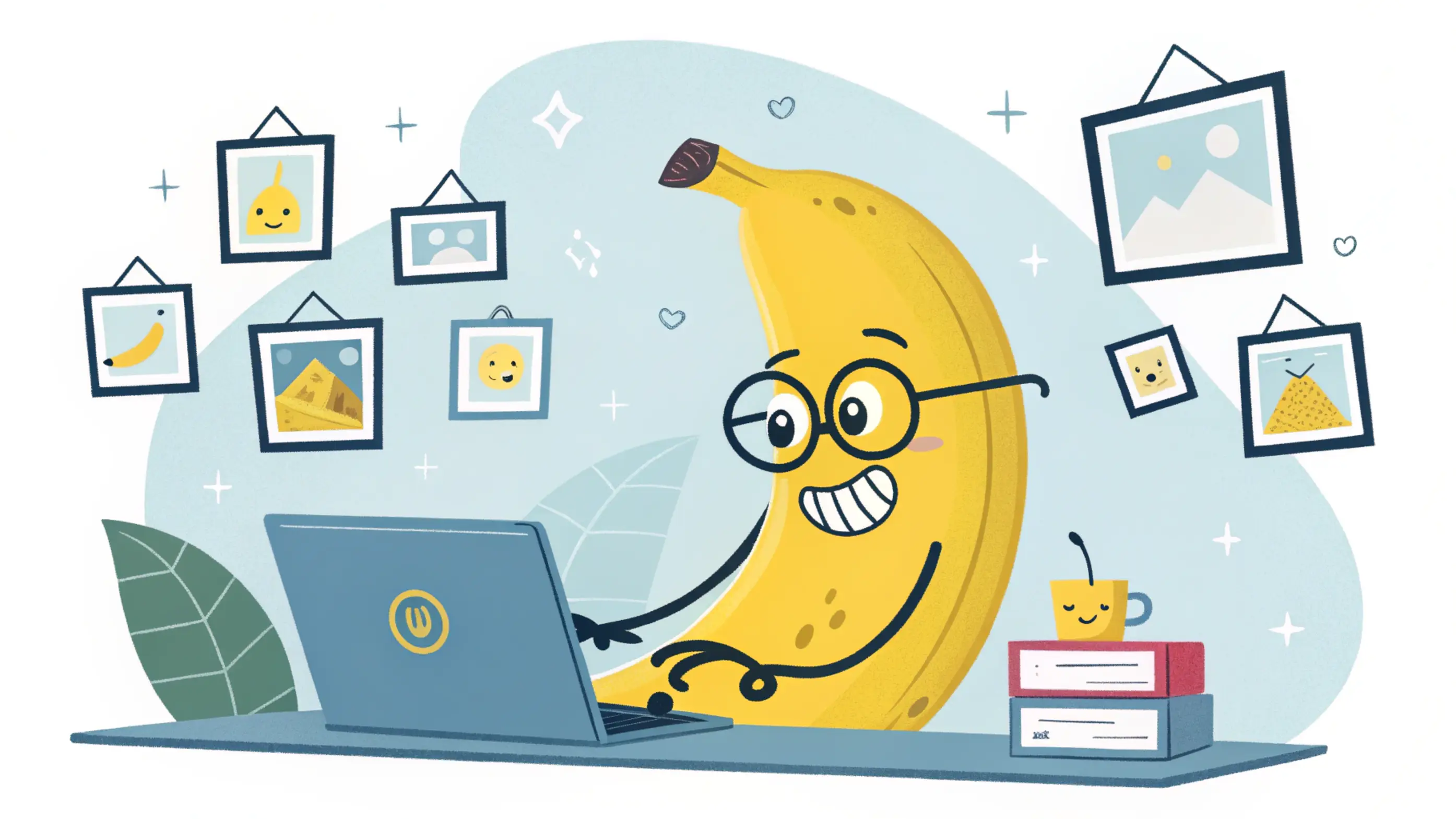
Google’s Gemini 2.5 Flash Image model, known by its viral codename Nano Banana, has disrupted the AI image editing landscape by achieving unprecedented character consistency and contextual understanding.
This advanced model can seamlessly merge multiple images, maintain facial identity across transformations, and understand complex spatial relationships that have challenged other AI editors.
Key Capabilities That Set Nano Banana Apart
- 95% Character Consistency: Maintains facial features and identity across different poses and scenarios
- Multi-Image Fusion: Combines up to 3 separate images into cohesive, realistic results
- Contextual Intelligence: Adds appropriate environmental elements and understands scene logic
- Professional Quality Output: Generates advertisement-level images suitable for commercial use
- Text Preservation: Maintains logos, signage, and branding details with accuracy
- Single-Prompt Workflows: Achieves complex edits that previously required multiple tools
How to Access Nano Banana for Free
Google AI Studio (Recommended)
Access: Visit aistudio.google.com with any Google account Features: Direct API access, template workflows, unlimited experimentation Cost: Free tier available; $0.039 per image for API usage .
LM Arena (Community Access)
Access: Visit lmarena.ai (no account required)
Method: Select “Battle Mode” → “Generate Image” → Upload images and prompt
Note: Uses lottery system - you may need multiple attempts to get Nano Banana results .
Warning: Avoid third-party websites claiming to offer “Nano Banana” access for payment - these are unauthorized and use different models.
Nano Banana Prompt Examples :
1. Social Scene Creation
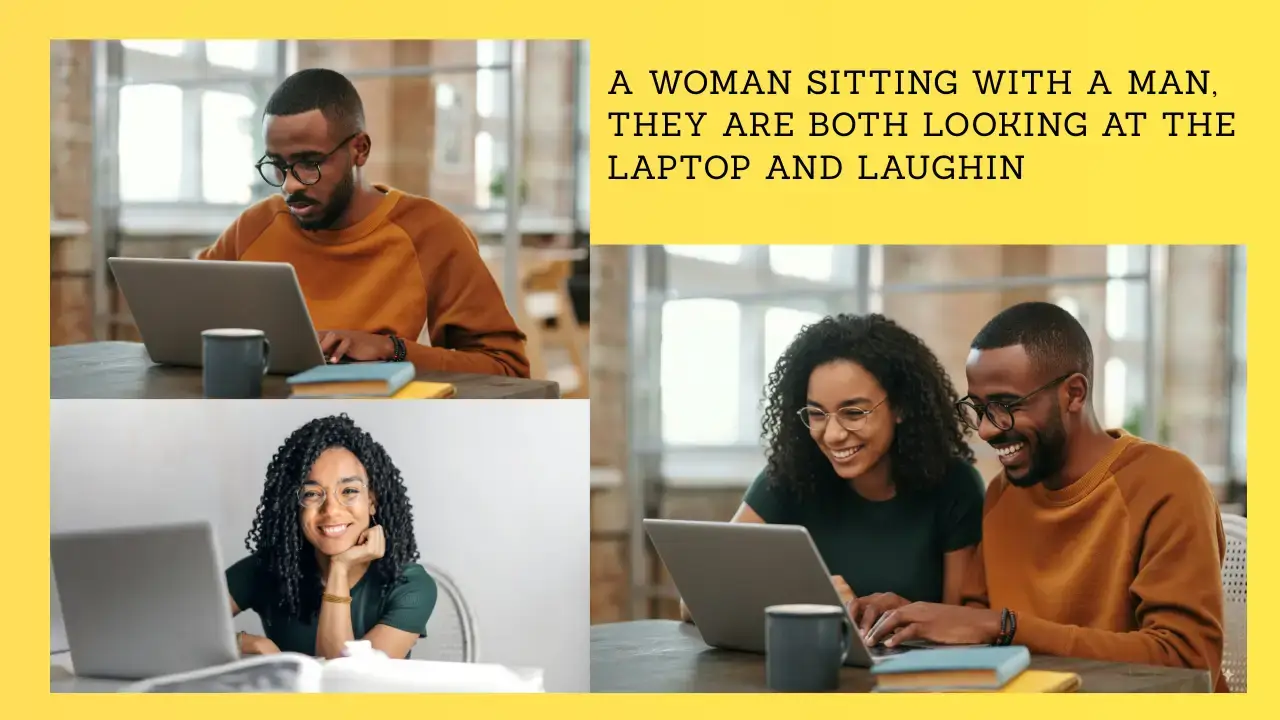
Use Case: Combining two separate images - a man in a cafe and a woman to create a natural social scene.
Read more : How to Create Consistent Characters with Nano Banana
2. Historical Figure Mashup - Standing Portrait
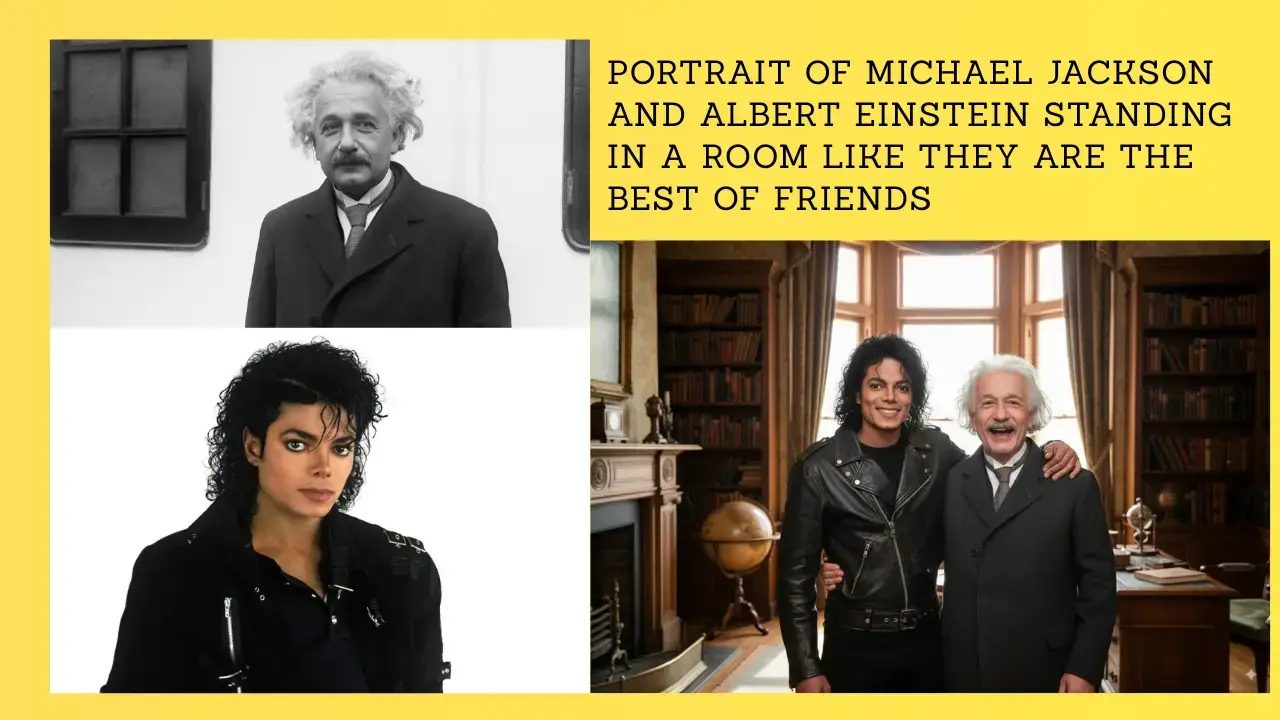
Use Case: Merging iconic figures from different eras into a single believable scene.
3. Historical Figure Mashup - Full Body
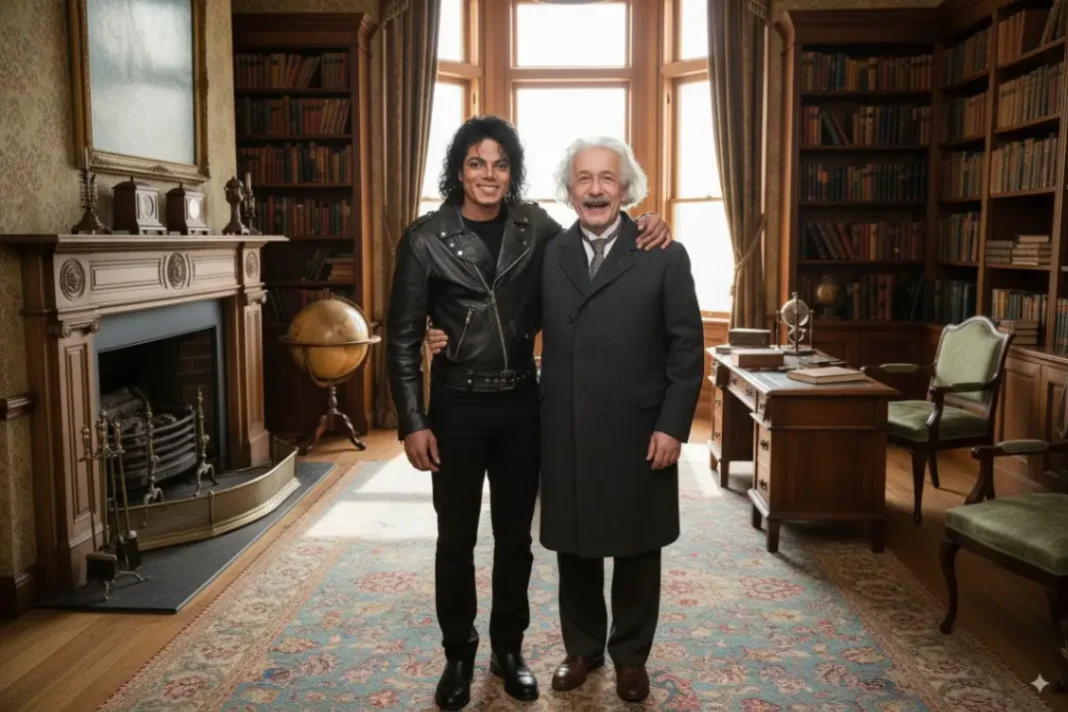
Use Case: Expanding the previous portrait to show full bodies while maintaining character consistency.
4. Weather Transformation
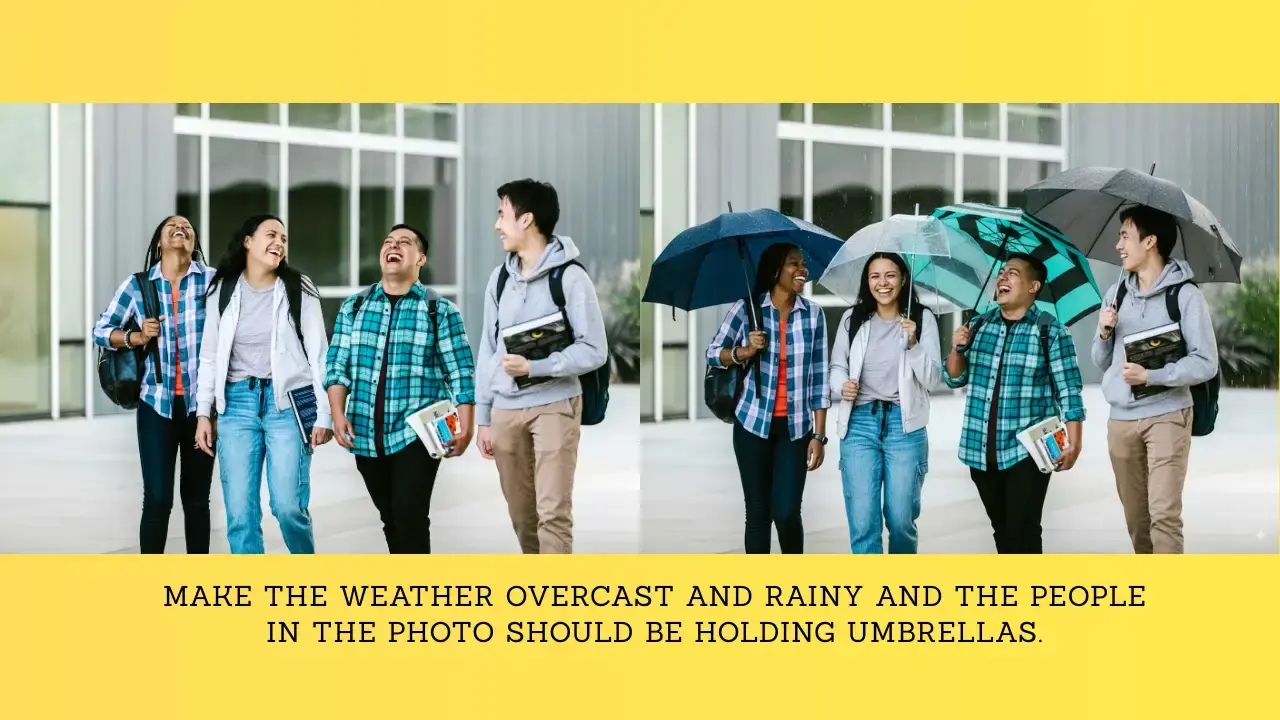
Use Case: Completely changing weather conditions and adding contextual objects (umbrellas) to match.
Read More :** How to Create Product Photography with Nano Banana**
5. Interior Design Transfer
Prompt: “Decorate the empty room with a Buddhist theme.”
Use Case: Using one decorated room as reference to transform an empty room with the same design elements.
6. Cinematic Car Portrait
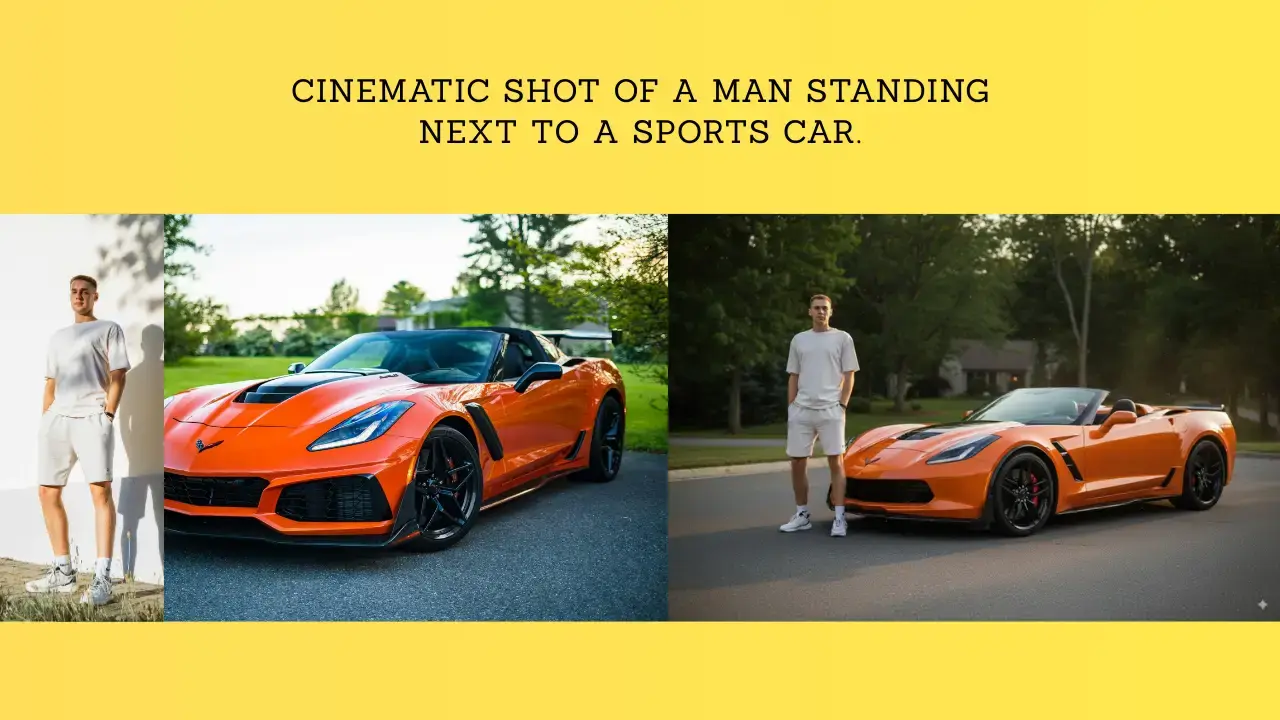
Use Case: Adding a generated sports car to create a cinematic portrait without uploading a car reference.
**Read More : **40 Nano Banana Prompts You Have To Try
7. Brand Clothing Transfer
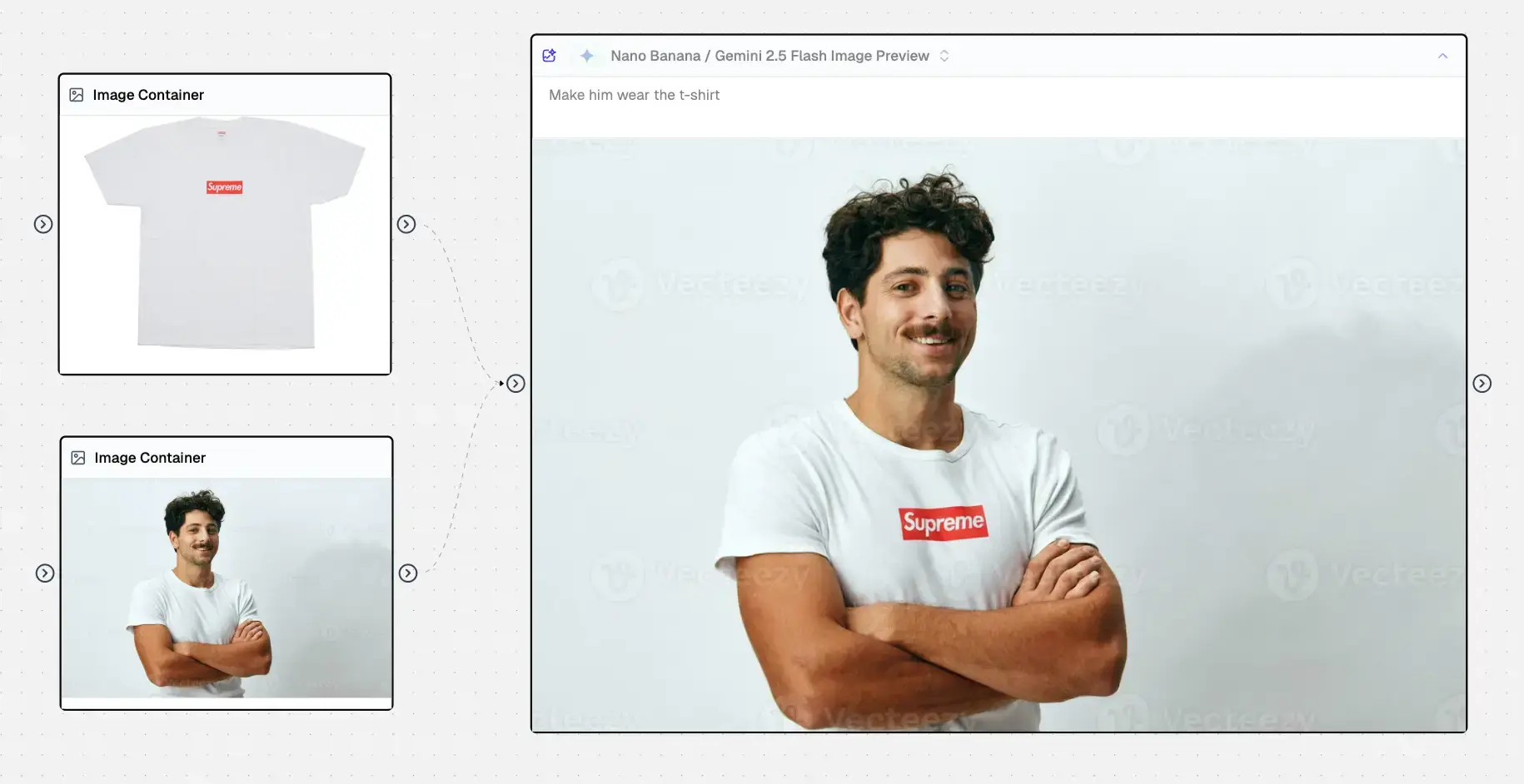
Use Case: Transferring a specific branded t-shirt (Supreme) onto a person while maintaining their exact pose, facial features, and body position. This demonstrates Nano Banana’s ability to seamlessly swap clothing items while preserving brand logos and character consistency.
This example shows how you can take a product image (the Supreme t-shirt) and naturally place it on a model while keeping everything else identical - perfect for e-commerce, fashion mockups, or brand marketing materials.
8. Black and White Photo Colorization
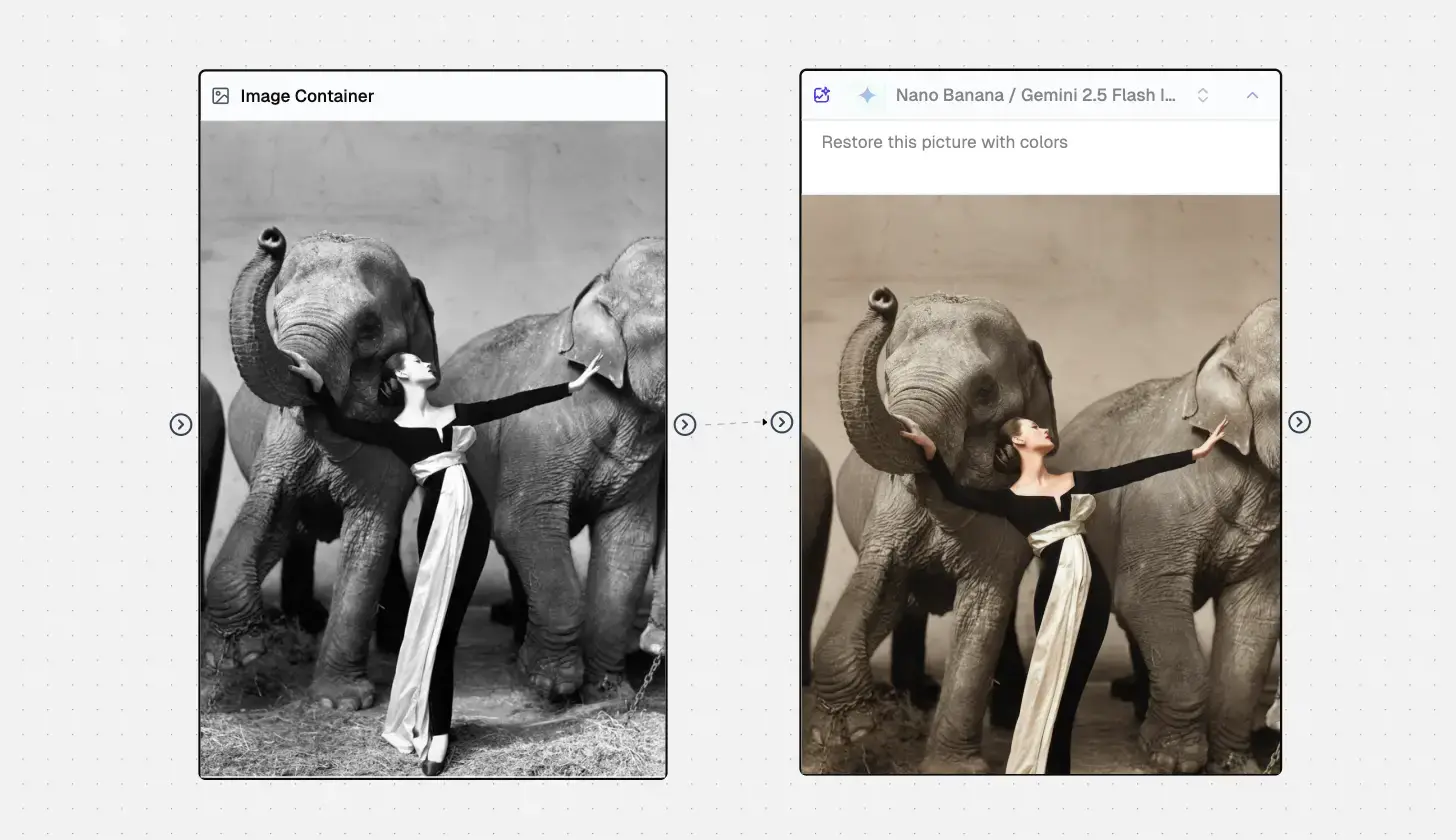
Use Case: Transforming a black and white photograph into a fully colorized version while maintaining all original details, composition, and character features. This demonstrates Nano Banana’s ability to intelligently add realistic colors to monochrome images, including natural skin tones, appropriate environmental colors, and contextually accurate hues for clothing and background elements.
This example showcases how vintage or black and white photos can be brought to life with historically accurate colorization, perfect for photo restoration, historical documentation, or creative projects that require color enhancement of archival imagery.
9. Meme Character Replacement
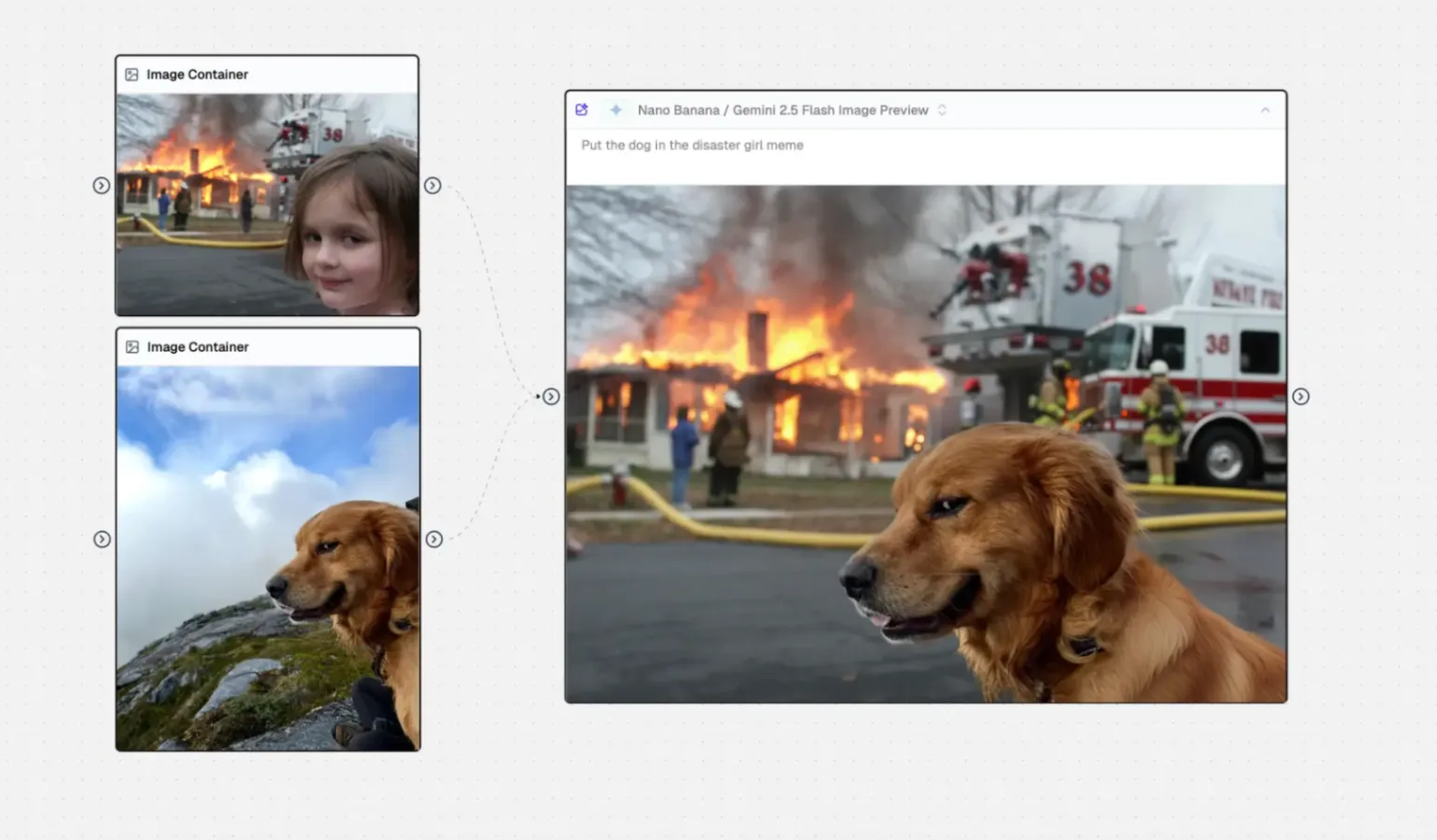
Use Case: Creating viral meme variations by replacing the original character with a different subject while maintaining the iconic composition and context. This demonstrates Nano Banana’s understanding of popular internet culture and meme formats, seamlessly placing the golden retriever in the classic “Disaster Girl” pose with the house fire background.
This example shows how Nano Banana can recognize and recreate famous meme templates, making it perfect for social media content creation, viral marketing campaigns, and humorous content that leverages existing internet culture while adding fresh characters or elements.
10. Brand Advertisement Creation
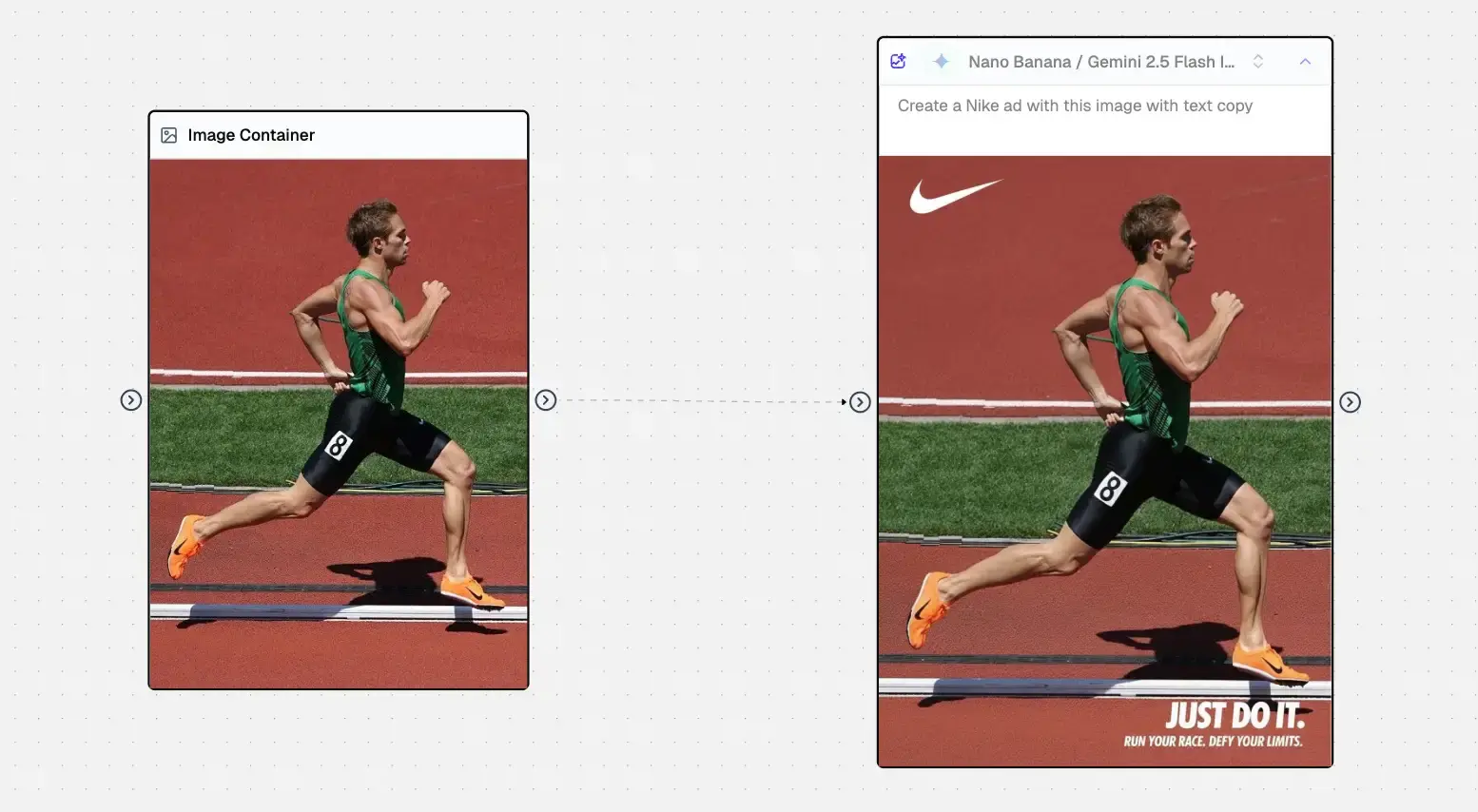
Use Case: Transforming a regular sports photograph into a professional brand advertisement complete with logo placement, marketing copy, and brand-appropriate design elements. This demonstrates Nano Banana’s ability to understand commercial branding requirements and automatically generate campaign-ready materials with proper Nike swoosh positioning, “JUST DO IT.” tagline, and motivational copy like “RUN YOUR RACE. DEFY YOUR LIMITS.”
This example showcases how photographers, marketers, and agencies can quickly create professional advertisement mockups from existing sports photography, maintaining the authentic action while adding all necessary brand elements in commercially viable layouts.
11. Architectural View Transformation
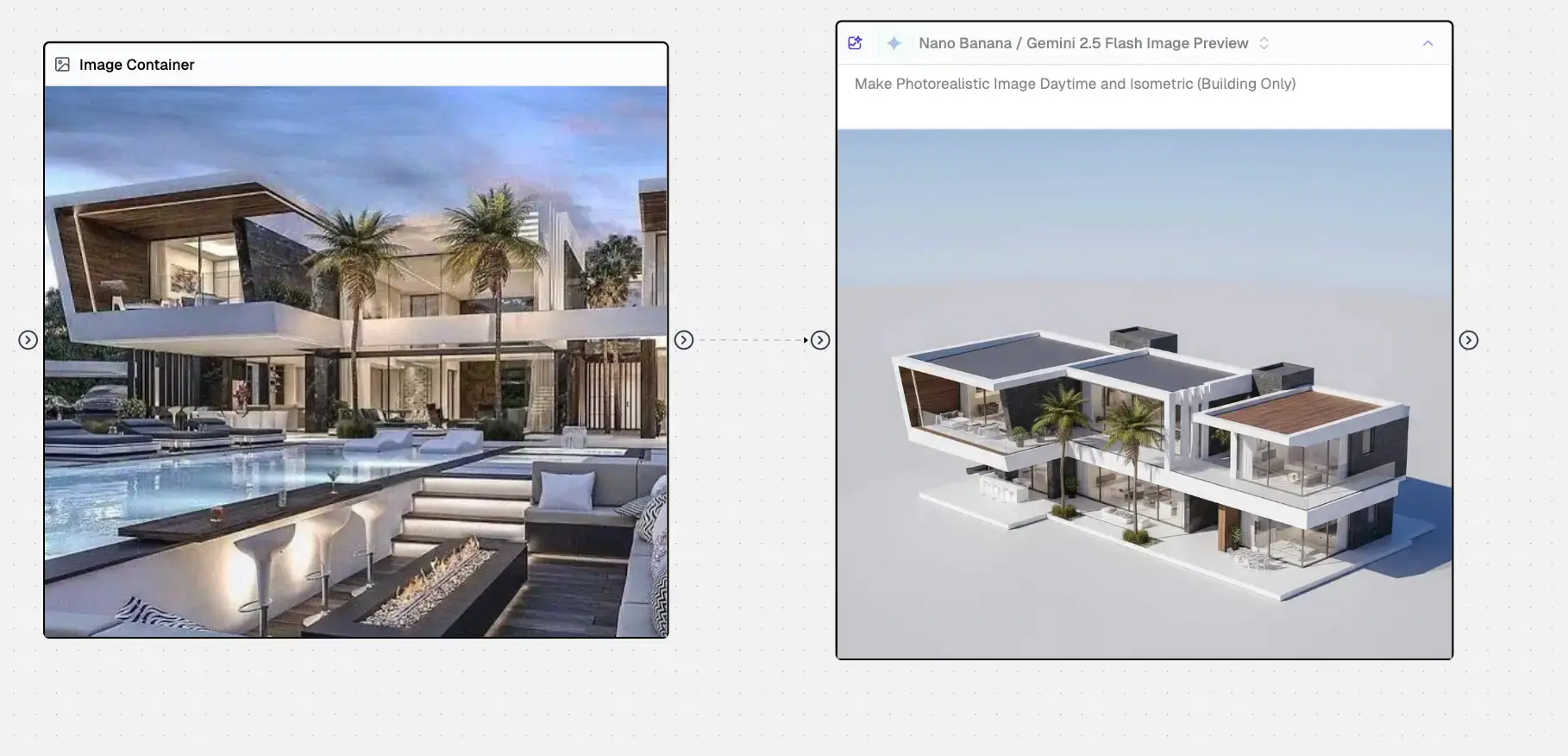
Use Case: Converting architectural photography into technical isometric views while changing lighting conditions and focus elements. This demonstrates Nano Banana’s ability to transform a luxury home’s evening poolside photograph into a clean, daytime isometric architectural rendering that isolates the building structure and removes decorative elements like pools and outdoor furniture.
This example shows how architects, real estate developers, and design professionals can quickly generate multiple presentation formats from a single source image - perfect for creating technical drawings, property development presentations, and architectural portfolios that require different viewing angles and lighting conditions.
12. Cinematic Car Portrait (Specific Car)
Prompt: Same prompt but with uploaded yellow car image
Use Case: Replacing the generated car with a specific car model while maintaining cinematic quality.
13. Multi-Angle Video Production
Prompts:
- “Medium close-up shot of the man”
- “Close-up shot of the woman”
- “Overhead shot of the same scene”
Use Case: Creating different camera angles from a single restaurant scene for video production.
14. Product Lifestyle Context
Prompt: “This chair in a cigar lounge.”
Use Case: Placing a leather couch in an appropriate luxury setting with contextual elements (cigars, whiskey).
15. Kitchen Appliance Scene
Prompt: “This coffee machine is kept in a kitchen. A cup of coffee is being made using it.”
Use Case: Creating a realistic kitchen environment with coffee-making action and relevant props.
16. Professional Product Advertisement
Prompt: “A woman holding a blue perfume bottle sitting on a luxurious couch and wearing pink leather boots.”
Use Case: Creating a professional advertisement image by combining person, product, and luxury setting.
17. Urban Automotive Scene
Prompt: “Man sitting in a sports car on a busy street in downtown.”
Use Case: Placing a person in an urban automotive setting with appropriate background context.
18. Clothing Swap with Complex Design
Prompt: “Man wearing a t-shirt which says stay rad.”
Use Case: Changing clothing while maintaining body pose and preserving text/design details.
19. Product Advertisement Creation
Prompt: “Cinematic advertisement for a bicycle.”
Use Case: Transforming a simple product image into a professional advertisement with maintained branding.
20. Vehicle Customization
Prompt: “Design the van in the same style as the logo.”
Use Case: Applying logo design elements to customize a vehicle’s appearance.
Read more :
Nano Banana vs Midjourney: 7 Must-Know Differences
Nano Banana vs Seedream 4: Which AI Image Editor Is Right for You?
Conclusion
Nano Banana represents a paradigm shift in AI image editing, consistently delivering professional-quality results that maintain character consistency while understanding complex contextual relationships.
These 15 examples demonstrate its superiority over established competitors like Flux Context, ChatGPT-4, and Gemini 2 Flash across diverse use cases from portrait photography to product advertisements.
The model’s ability to execute complex multi-image compositions, preserve branding elements, and generate different camera angles from single scenes positions it as an essential tool for content creators, video producers, and marketing professionals.
With Google’s planned integration into Pixel phones, the Gemini app, and Veo video generation, Nano Banana is poised to democratize professional-level image editing capabilities.
While currently accessible through Google AI Studio and LM Arena, the upcoming official release will likely establish new industry standards for AI-assisted creative workflows and reshape how we approach visual content creation.